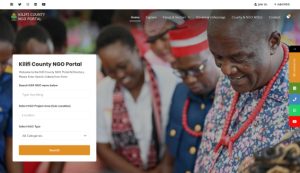Comprehensive Support for Gender-Related Health Needs
The Kilifi County Gender Department is dedicated to enhancing health services that address gender-specific needs and promote overall well-being. Our health services focus on providing accessible, equitable, and comprehensive care for individuals across the county, with special attention to gender-based health challenges and vulnerabilities.
Gender-Based Violence (GBV) Health Support
Emergency Medical Care:
We ensure that survivors of gender-based violence (GBV) have immediate access to emergency medical services. Our network of health facilities provides comprehensive care, including treatment for injuries, infections, and other health issues related to GBV.
Specialized GBV Clinics:
We operate specialized clinics within local health facilities that offer confidential and sensitive care to GBV survivors. These clinics provide medical examinations, forensic services, and follow-up care to support survivors’ physical and emotional recovery.
Psycho-Social Support:
In addition to medical care, we offer psycho-social support through counseling services and mental health care. Survivors receive emotional support and therapy to help them cope with trauma and rebuild their lives.
Sexual and Reproductive Health (SRH) Services
Family Planning Services:
We provide a range of family planning options to help individuals make informed choices about their reproductive health. Services include contraceptive counseling, access to various contraceptive methods, and education on reproductive health.
Maternal and Child Health:
Our maternal health programs focus on ensuring safe pregnancies and deliveries, including prenatal and postnatal care. We also provide support for breastfeeding, newborn care, and early childhood development.
Adolescent SRH Education:
We offer education and services tailored to the needs of adolescents, including information on puberty, sexual health, and rights. Our programs aim to empower young people to make informed decisions and access appropriate services.
Health Promotion and Disease Prevention
Awareness Campaigns:
We run health promotion campaigns to raise awareness about gender-specific health issues, including sexually transmitted infections (STIs), HIV/AIDS, and cervical cancer. These campaigns use various media and community outreach methods to educate the public and reduce stigma.
Preventive Health Services:
Our preventive health services include vaccination programs, screenings, and health checks to detect and manage health conditions early. We focus on preventing diseases and promoting healthy lifestyles through regular check-ups and health education.
Community Health Programs:
We support community health programs that provide essential health services and education at the local level. These programs involve partnerships with community health workers, local organizations, and health facilities to deliver care and promote health.
Access to Health Services
Mobile Health Clinics:
To reach underserved areas, we operate mobile health clinics that provide essential services in remote and rural locations. These clinics offer a range of health services, including medical consultations, screenings, and preventive care.
Health Education and Training:
We conduct training for health professionals and community health workers to enhance their skills in providing gender-sensitive and comprehensive care. Training programs focus on topics such as GBV response, SRH services, and health promotion.
Collaboration with Health Partners:
We collaborate with national and international health organizations to strengthen health services and improve access. These partnerships enable us to leverage resources, share best practices, and implement effective health interventions.
Support for Health Facilities
Infrastructure Improvement:
We invest in upgrading health facility infrastructure to ensure that they are equipped to provide high-quality care. This includes renovating facilities, improving sanitation, and expanding service delivery areas.
Resource Allocation:
We allocate resources and provide support to health facilities to enhance their capacity to deliver comprehensive services. This includes supplying medical equipment, medications, and other essential resources.
Monitoring and Evaluation:
We regularly monitor and evaluate health services to assess their effectiveness and impact. Feedback from patients and healthcare providers is used to make improvements and ensure that services meet the needs of the community.
The Kilifi County Gender Department’s health services are designed to address gender-specific health needs and promote well-being for all individuals. By providing comprehensive care, support, and education, we strive to improve health outcomes and enhance the quality of life for our community.








